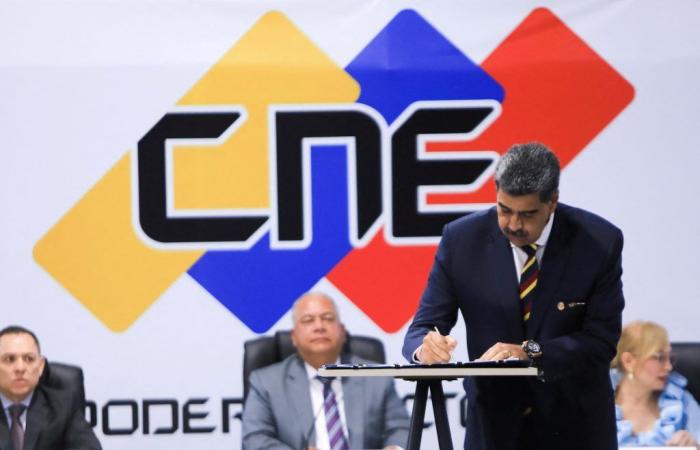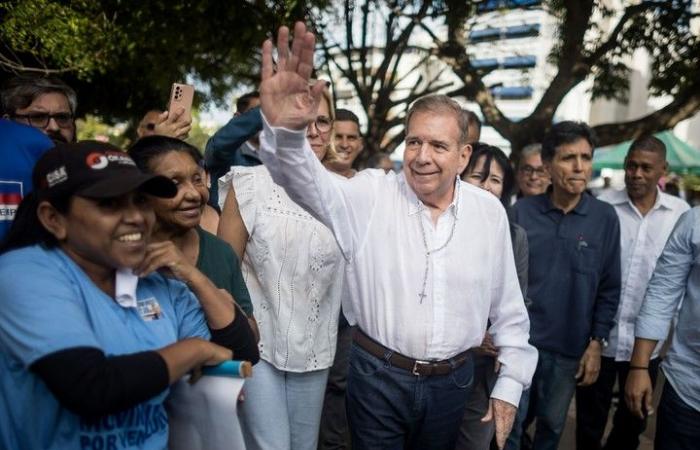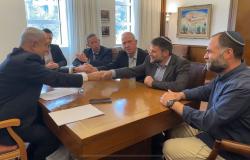The president of Venezuela, Nicolas Maduroasked for respect this Thursday for the National Electoral Council (CNE), after he and eight other candidates signed an agreement that requires recognition of the result of the elections on July 28, announced by the governing body after the votes are counted. , leaving no room for possible claims.
“They have to respect the referee. If the referee calls you, you are obliged, as a candidate, to go and listen to the referee,” said Maduro, without mentioning names, while calling on all Venezuelans “to support this document” and “to respect the CNE”, since – he considered – its word is “sacred”, a statement with which he disagrees the traditional opposition, which ensures that the electoral institution is related to Chavismo.
The president of the CNE is Elvis Amoroso, who led the National Comptroller’s Office that ordered the disqualifications of opponents, including María Corina Machado, winner by an overwhelming majority of the anti-Chavista primaries.
Edmundo González Urrutia, candidate of the largest opposition coalition, Democratic Unitary Platform (PUD), did not sign the document and said earlier that he was not invited to the signing, which he had previously rejected, arguing that the Barbados Agreement – signed by the Chavismo and the opposition in October – was already contemplating the recognition of the electoral results.
Enrique Márquez, another opposition presidential candidate, did not sign either.
González Urrutia, Maduro’s main rival, stressed that an “agreement can never be imposed unilaterally, but must emerge from a respectful dialogue between the parties.”
The former diplomat, through his account on the social network European Union and increase the persecution against leaders and sympathizers of our campaign.”
In a statement, González Urrutia pointed out that the agreement to recognize results, in addition to being a prior commitment, “is a hint of bias” that characterizes the “unequal electoral campaign”, in which – he stated – the CNE “should act with impartiality.”
Maduro, for his part, congratulated “all the rectors” who, he assured, presented the recognition agreement by “institutional unanimity”, signed it and endorsed it “as has never been seen before in the history of Venezuela.”
Last May, the CNE revoked the invitation to the European Union, which until then had not confirmed its participation with an observation mission for the electoral process. Under its standards, it would be broader than a simple “oversight” and would include monitoring the different stages of the process.
Amoroso justified the decision as a rejection of the fact that the European bloc, although it lifted a sanction against him, maintained the measures imposed on more than 50 Venezuelans accused of acts of repression or for undermining democracy in the Caribbean country.
The agreement
The document, proposed by Chavismo and made official by the CNE, contemplates express recognition of the work of the governing body during the electoral process, in compliance with the established schedule.
It also commits to maintaining a “climate of respect, peace and democratic participation”, so that, on election day and the days that follow, “the will of the people of Venezuela is not interfered with or ignored with acts of violence and destabilization that threaten the well-being of the country”.
It also includes various points that are already contemplated in the Barbados Agreement – such as the recognition of the electoral result or the “guarantees” in the process – or in Venezuelan legislation itself, in relation to the defense of “the homeland”, stability democracy or respect for human rights, among others.
Another point is to “fulfill the duty to honor and defend the homeland and demand the absolute lifting of the unilateral coercive sanctions” imposed on Venezuela.
The punishment of several Venezuelan officials by the United States and Europe was also due to the fact that the last election in which Maduro was re-elected was not recognized as legitimate, amid strong complaints and suspicions of fraud.







